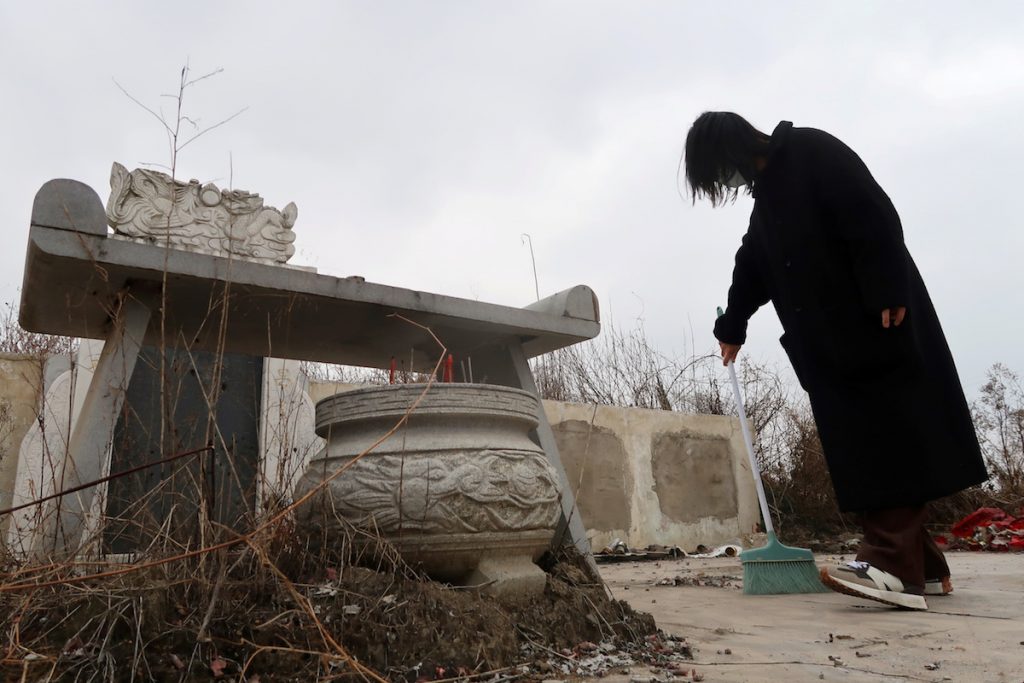The Lunar New Year holiday that begins on Feb. 12 will be tinged with sorrow for Deng Wei, a 26-year-old resident of China’s central city of Wuhan.
Instead of celebrating, she will commemorate the deaths of her father and grandmother during last year’s holiday, from complications of the coronavirus that emerged in the city to cause the disease now known as COVID-19.
Deng recalls the last time she spoke to her grandmother, in a hospital ward in a northeastern suburb of Wuhan, just days before her death.
“The security guard didn’t let me stay for too long,” Deng said from the site of the tombs where the ashes of her father and grandmother rest on the city’s outskirts.
“She was lying in the bed and couldn’t even see my face,” Deng added, holding back tears.
“She couldn’t get up. Then I told her to eat well and she would be fine. She told me to take good care of my mother.”
The grandmother wasn’t just worried for herself. Deng’s mother, Deng Yichun, was also in hospital at the time, and doctors gave her a slim chance of survival.
“The doctors said that they would try their best,” Deng recalled. “I was desperate after hearing this. But luckily my mother pulled through.”
Deng’s mother, now 51, still suffers from the effects of the disease, battling depleted energy levels and what she calls a general decline in her mental and physical health.
The driving school the mother managed with her late husband has also suffered as some customers, who became aware of the family’s tragedy, steered clear, Deng Yichun said.
Deng’s mother, father and grandmother never tested positive for the virus, but they displayed classic symptoms, such as high fever, lung scarring and breathing difficulty. Doctors treating them said they were certain all three had the virus.
Deng does not know exactly how they became infected but suspects a gathering of dozens of family members at her home for her grandfather’s funeral in the first week of January 2020 was where the virus spread.

Little was known about it at the time. Several Wuhan doctors, including Li Wenliang, who later died from the virus, tried to raise the alarm, only to be reprimanded for spreading rumors.
Many in Wuhan have criticized local officials for a lack of transparency during the early days of the outbreak, which eventually spread across the globe to disrupt businesses and the lives of millions.
China, which has defended its handling of the pandemic and has managed to nearly stamp out local transmission, said only on Jan. 20 last year that the virus could be transmitted between people.
Had Deng’s family known of the dangers, she said, the funeral might have still gone ahead, but the mourners could have worn masks, for example.
“At least people would have taken precautions.”
This year, Deng will return to the tombs to burn incense with close family members on the third and fourth days of the Lunar New Year, as they pay their respects on the death anniversaries.






